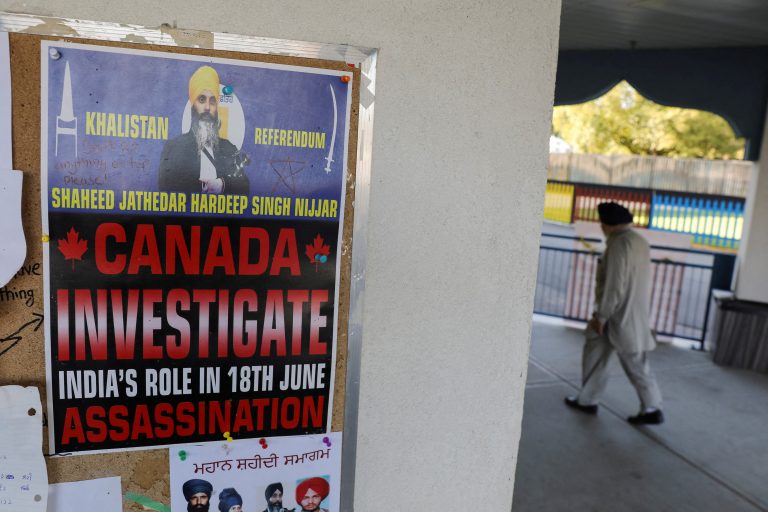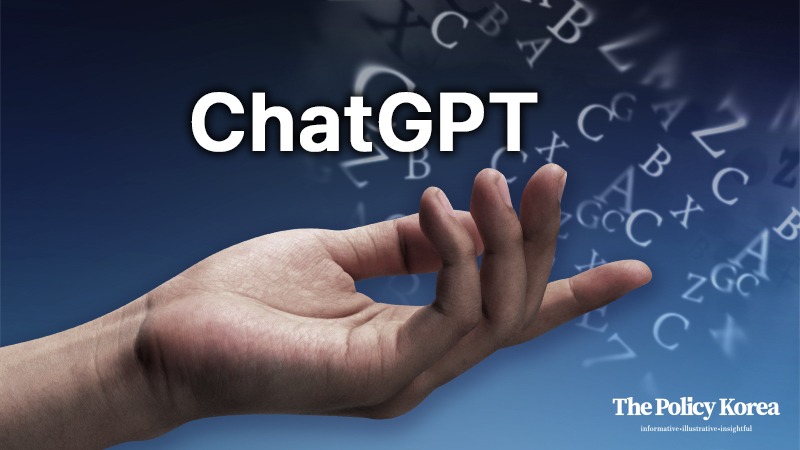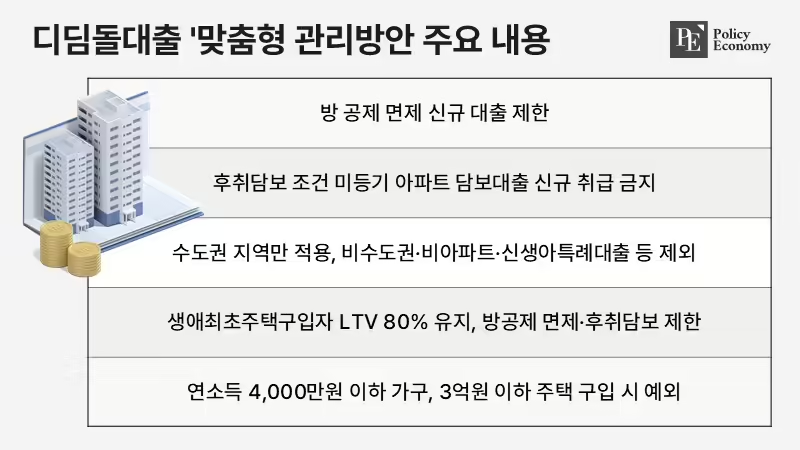[동아시아포럼] 인도·캐나다 간 외교 갈등과 서구의 대응 전략
올해 6월, 캐나다 국적의 시크교 분리주의 지도자 피살 인도 정부, 시크교 분리주의자들을 테러리스트로 지정 트뤼도 총리 “인도 정부가 배후, 명백한 주권 침해” 주장
[동아시아포럼]은 EAST ASIA FORUM에서 전하는 동아시아 정책 동향을 담았습니다. EAST ASIA FORUM은 오스트레일리아 국립대학교(Australia National University) 크로퍼드 공공정책대학(Crawford School of Public Policy) 산하의 공공정책과 관련된 정치, 경제, 비즈니스, 법률, 안보, 국제관계에 대한 연구·분석 플랫폼입니다. 저희 폴리시코리아(The Policy Korea)와 영어 원문 공개 조건으로 콘텐츠 제휴가 진행 중입니다.
주요 선진국들은 인도와의 파트너십에서 ‘민주주의’와 ‘규칙 기반 질서’의 공유를 강조하는데, 서구권에서는 이 두 가지 가치를 인도와 중국을 구분 짓는 요소로 보고 있다. 하지만 그동안 인도는 아시아의 민주주의 대국으로서 규칙 기반 질서를 지지해 왔음에도 불구하고 최근 몇몇 서구 국가들과의 외교적 갈등이 심화되고 있다. 특히 갈등을 촉발한 사안이 언론의 자유 및 평등한 법의 집행과 관련됐다는 점에서 서구 국가들은 중국의 전랑외교(wolf-warrior diplomacy)와 유사한 방식으로 대응하고 있다.

시크교도 분리주의자 피살사건으로 양국관계 경색
올해 6월 시크교 분리주의 단체 ‘정의를 위한 시크족(SFJ)’의 캐나다 국적 지도자 하르딥 싱 니자르(Hardeep Singh Nijjar)가 캐나다 브리티시컬럼비아주의 한 시크교 사원에서 살해되는 사건이 발생했다. 그동안 인도 정부는 SFJ를 이끌면서 칼리스탄 분리 독립을 주장했던 니자르를 테러리스트로 규정해 왔고 캐나다 정부는 배후로 인도 정부를 지목했다.
이와 관련해 지난 9월 쥐스탱 트뤼도(Justin Trudeau) 캐나다 총리는 의회에서 “캐나다 영토에서 캐나다 시민이 살해된 사건에 외국 정부가 개입된 것은 용납할 수 없는 주권 침해”라고 비난하면서 “인도 정부 요원이 연루됐다는 믿을 만한 근거가 있다”고 말했다. 하지만 현재까지 캐나다 정부는 인도 정부가 연루됐다는 주장을 뒷받침할 수 있는 확실한 증거를 공개하지 않고 있다. 그렇다고 해서 캐나다 정부의 주장이 사실이 아니라고 속단할 수도 없다.
정치적 기회주의자로 통하는 트뤼도 총리의 외교적 역량은 국제 사회에서 비교적 낮게 평가되고 있다. 트뤼도 총리가 사실을 과장하거나 근거가 없는 거짓말로 인도를 자극하거나 긴장을 촉발하는 전략을 쓸 가능성은 거의 없다는 의미다. 물론 트뤼도 총리가 이끄는 자유당은 자국 내 인도계 디아스포라가 집권당인 인도인민당(BJP)에 대해 표출하는 저항 의지를 지지할 만한 동기가 있지만 캐나다 고위 관료들이 근거도 없이 추측만으로 사건의 배후를 지적할 가능성은 낮다. 더욱이 양국의 갈등이 심화될 경우 파이브 아이즈(미국·영국·캐나다·뉴질랜드·호주) 동맹국들과 인도 간 파트너십을 강화하려는 노력에 부정적인 영향을 미칠 수 있음을 고려해야 하는 입장이다.
트뤼도 총리와 캐나다 정부는 니자르 피살사건에 대해 인도 정부가 소명해야 한다고 주장하지만 실제 이 사건을 인도 정부가 주도한 것인지, 아니면 다른 비합법적 형태의 정치 조직이 저지른 일인지는 아직까지는 명확하지 않다. 이러한 상황에서 캐나다와 인도 간 외교적 보복이 무한 반복되면 향후 수년간 양국의 불신이 심화될 가능성이 높다.
캐나다, ‘인도계 디아스포라’에 대해 이중적 기준 가져
양국의 갈등에는 인도계 디아스포라에 대한 캐나다의 정치적 지지가 주된 요인으로 작용하고 있다. 캐나다 사회에서는 이민자 커뮤니티와 이들의 정체성을 정치에 이용하는 방식이 깊게 뿌리내려 있다. 이에 반해 인도는 캐나다 시민들이 테러리스트인 시크교 분리주의자에 대해 관대한 태도를 보이는 것을 강하게 비판하고 있다.
인도가 시크교 분리주의자에 대한 강경한 대응을 포기하고 한 발짝 물러서게 된다면 이는 곧 캐나다 정부의 디아스포라 정치를 인정하거나 지지하는 것이나 마찬가지기 때문에 인도 정부가 현재의 기조에서 후퇴할 가능성은 거의 없다. 캐나다의 입장에서 니자르 피살사건을 토니 블링컨(Tony Blinken) 미 국무장관이 언급한 초국가적 억압(transnational repression)과 관련한 사안으로 보고, 자국의 주권은 물론 민주주의의 기본권인 언론·출판의 자유와 집회·결사의 자유를 침해한 것으로 인식하고 있다.
인도 입장에서 디아스포라-테러 간 연관성 수용해야
니자르 피살사건은 인도-캐나다 간 외교적 갈등 그 이상의 의미를 가진다. 이는 민주주의 대 권위주의, 더 정확히는 민주주의 대 자유주의의 충돌 또는 자유 민주주의 대 비자유 민주주의의 충돌을 의미한다. 역사학자인 트리푸르다만 싱(Tripurdaman Singh) 박사는 “인도는 선거에 기반한 정치적 경쟁이 민주주의의 활력을 불어넣고 있지만 아직도 독재적 구조의 특징이 남아있다”고 지적했다. 미국의 정치학자 크리스틴 페어(Christine Fair) 교수 역시 “인도 사회에 남아있는 독재적 관행은 시크교 분리주의자에 대해 적대적 감정을 표출하는 인도 정부의 접근 방식에 영향을 미치고 있다”고 설명했다.
인도 정부도 시크교 분리주의 단체에 대한 강경한 대응에 인도계 디아스포라 전체가 이용되는 것을 원하지 않는다. 다만 서구 국가들이 시크교 분리주의자들이 폭력주의자이자 테러리스트임을 진지하게 고려한다면, 인도는 이들의 테러 활동에 대해 더욱 강경하게 대응할 수 있다. 이를 위해 인도 정부는 서구 국가들에게 디아스포라의 테러 활동 증거를 제시하는 데 성실히 임해야 하며, 서구 국가들은 인도 정부가 부패하지 않았으며 테러리즘방지법이 오히려 비폭력적 대응을 제한할 수 있다는 점을 수용해야 한다.
페어 교수는 “인도는 자국 내 사법체계가 부실한 상황에서 시크교 분리주의자들의 테러 활동을 서구 국가들에게 어떻게 설명해야 하는지 고민할 필요가 있으며, 서구 국가들은 인도의 역사에서 칼리스탄 민병단 같은 테러 피해가 존재했음을 인정해야 한다”고 지적했다. 그러면서 “캐나다, 호주 등 인도계 이민자의 비중이 큰 국가에서는 인도에 대한 이해를 토대로 인도계 이민자 커뮤니티와 소통함으로써 인도와의 관계에서 정치적 현안에 휩쓸리지 않으면서도 자국 내 통합을 해치지 않을 수 있다”고 주장했다.
서구 국가들은 민주주의 수호와 테러 대응이라는 이중적 기준에 대해 수용할 필요가 있다. 2000년대 미국이 주도했던 테러와의 전쟁에도 명암이 존재했기 때문이다. 고문, 비합법적인 사살, 자의적 구금과 억류, 나아가 이라크 침공이라는 재앙이 그것이다. 인도와 서구 국가들 간의 갈등이 심화되면서 인도가 위치한 남반구 국가 대부분 규칙 기반 질서에 대해 의구심을 가지고 있는 만큼, 서구 국가들은 인도의 입장과 대응에 대해 더욱 세심하게 살피고 대응해야 한다.
The West gets a reality check on India
Western countries’ efforts to enhance their partnerships with India have been embroidered with the rhetoric of a shared commitment to democracy and the ‘rules-based order’ — two things which, it’s implied, distinguish India from China.

How awkward, then, that Asia’s democratic behemoth, the new friend of the ‘rules-based order’, is now caught with a Western liberal democracy in a diplomatic crisis that has uncanny echoes of some countries’ run-ins with Beijing’s wolf-warrior diplomacy, over issues that have a lot to do with clashing views of free speech and the rule of law.
It’s been almost a month since Canadian Prime Minister Justin Trudeau told his parliament that Canadian intelligence agencies were looking into credible allegations of Indian state involvement in the murder of a Sikh leader, Hardeep Singh Nijjar, accused by India of involvement in terrorism, in the suburbs of Vancouver.
Much of the discussion of this case has to take place under the cover of the conditional tense, given that a central issue in this affair is that no hard evidence has been made public to back up the Canadian government’s allegations.
This is not to say that Ottawa’s allegations are not true. Trudeau is a political opportunist not exactly renowned for his foreign policy prowess. As his Indian critics emphasise, the Liberal Party he leads has incentives to pander to anti-Bharatiya Janata Party (BJP) sentiment in local diaspora communities. But it’s implausible that Trudeau and other high-ranking Canadian officials would recklessly upend the Canada–India relationship — not to mention wedging Five Eyes allies increasingly invested in closer ties with India — on a complete hunch.
Ottawa is clearly confident that India has some case to answer. Whether the killing of Nijjar was in fact an act perpetrated by the Indian state, or rogue elements of it, is another matter.
In the short term, domestic political incentives will see Canada and India stuck in a ‘doom loop’ of diplomatic retaliation, as Kim Nossal argues in this week’s lead article.
The current crisis follows decades of drift and distrust in Canada–India relations, in which the politics of Canada’s resident Indian diaspora have been a central sticking point. As Nossal writes, playing with the identity politics that pervades some migrant communities has been ‘deeply embedded in Canadian political practice’ for decades, with ‘many Indians’ being ‘highly critical of the tolerance enjoyed by Sikh separatists in Canada’ in particular.
For India ‘there is little incentive to back down given that any retreat would merely encourage the continuation of the diaspora politics in Canada that strained the relationship.’ For Canada, issues of sovereignty are now at stake, not to mention the principles of freedom of speech and association, in the face of what US Secretary of State Anthony Blinken implicitly characterised as a possible case of ‘transnational repression’.
The issues go deeper than diplomatic niceties. The language of shared values invoked whenever Western leaders meet their Indian counterparts papers over a clash of systems — not of democracy and authoritarianism per se, but between liberal versus illiberal democracy.
As the historian Tripurdaman Singh observes, authoritarian practices have been ‘structural features’ of India’s political system since independence, despite the vibrancy of its civil society and electoral competition. These heritages, writes Christine Fair, have a fundamental impact on how the Indian state approaches the articulation of ‘separatist’ sentiment.
India has a proper and legitimate interest in not seeing the Indian diaspora become a base for supporting violent political movements. By reassuring New Delhi that this interest is taken seriously, Western governments will be in a stronger position to push back against any Indian efforts to police diaspora communities’ peaceful exercise of their political rights abroad, regardless of their alignment with the BJP’s domestic political agenda.
This will involve engaging in good faith with Indian authorities when they present evidence of terrorist activity in the diaspora, while recognising that India’s legal institutions are not corruption-free and, and its terrorism laws are highly amenable to being abused to repress nonviolent activism.
‘While India needs to understand how its shambolic justice system at home influences the way its claims about terrorists abroad are assessed’, Fair argues, ‘Western leaders need to acquaint themselves with important aspects of Indian history — such as the Khalistan militancy — that contextualize [Indian] concerns.’
Such India literacy among the political classes of countries with large Indian diasporas, such as Canada and Australia, will allow politicians and the media to engage with those communities without being drawn into local fronts in India’s domestic political fights in ways that both undermine cohesion at home and impact important government-to-government relations.
Sensitivity to Indian perceptions of double standards will also be valuable. Western governments should keep in mind the legacies of their own complicity in the dark underbelly of the US-led War on Terror, which involved torture, extrajudicial killing on foreign soil and arbitrary detention — not to mention the calamitous invasion and occupation of Iraq.
When many in India and elsewhere across the Global South view the rhetoric around the ‘rules based order’ with cynicism, this is the kind of thing they have in mind.
원문의 저자는 오스트레일리아 국립대학교(Australian National Universit) 크로퍼드 공공정책대학(Crawford School of Public Policy) 산하 동아시아포럼 편집부입니다.



























